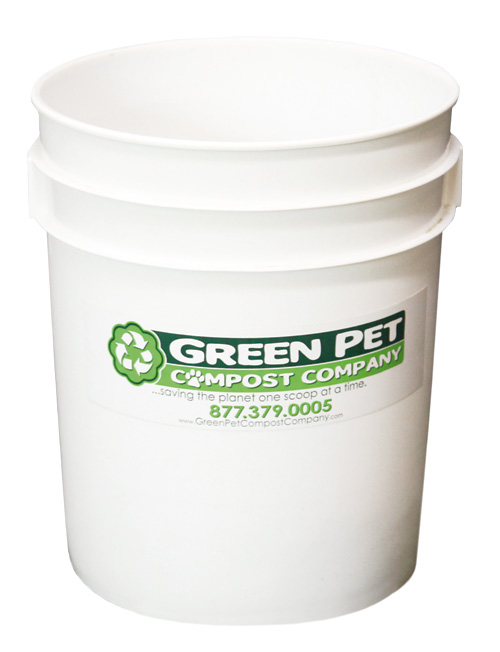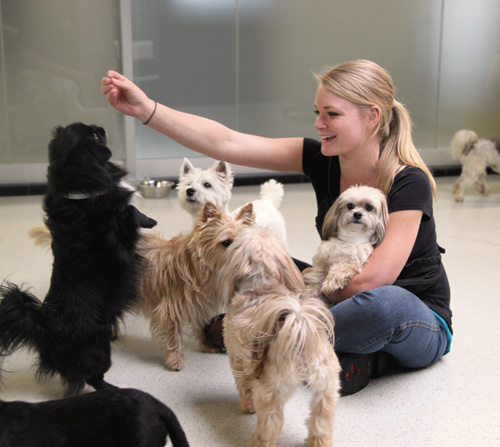 When Steve Dreiling took over son Lance Donavan’s Green Pet Compost Company in early 2011 it had 100 clients. It now has 200 residential clients in the Portland metro area (as well as Gig Harbor, Wash., where Dreiling lives) and 10-12 commercial clients, including the Stay Pet Hotel and Sniff Dog Hotel in Portland.
When Steve Dreiling took over son Lance Donavan’s Green Pet Compost Company in early 2011 it had 100 clients. It now has 200 residential clients in the Portland metro area (as well as Gig Harbor, Wash., where Dreiling lives) and 10-12 commercial clients, including the Stay Pet Hotel and Sniff Dog Hotel in Portland.
By Kristen Hall-Geisler
 |
Kaci Gerke taking care of dogs at the Sniff Dog Hotel, which uses Green Pet Compost’s services.// Photo by Alexandra Shyshkina |
When Steve Dreiling took over son Lance Donavan’s Green Pet Compost Company in early 2011 it had 100 clients. It now has 200 residential clients in the Portland metro area (as well as Gig Harbor, Wash., where Dreiling lives) and 10-12 commercial clients, including the Stay Pet Hotel and Sniff Dog Hotel in Portland.
When Donavan started the company in 2009, the idea was to keep dog waste — and the plastic bags that often encase it — out of the landfill. Collecting it and composting it would not only offer Oregonians a greener option, but Green Pet Compost stood to profit on both ends of the process.
The pickup business has been doing well since Donavan started it, but the compost business needed to be ramped up. Steve and brother Greg invested the capital to bring the waste to Poulsbo, Wash., and compost it.
The startup costs for composting pet waste were steep. The in-vessel composter itself ran about $40,000, plus they needed forklifts for moving the compost around. Even though they built the mixers and augurs themselves, the Dreilings invested $100,000 in startup costs alone.
The reuse aspect is still in its early stages. The first batches of compost were only finished midway through 2011, just in time for Oregon’s busiest growing season to wrap up. The Dreilings have hired a marketing expert to help overcome the “yuck factor,” as Dreiling calls it, and get the product to potential clients who use compost year-round. Only one-fifth of Green Pet Compost’s capacity is being used.
Overcoming the yuck factor is going to be a matter of getting the compost onto the shelves and into flowerbeds. “Once we mix the waste with a carbon source, primarily sawdust, there is no smell,” he says. During the compost process, the whole vessel stays consistently hot, at 131-150 degrees for 72-100 hours, which kills all pathogens.
For now, customers can buy the finished compost at a wholesale price, and bags will be delivered at the next scheduled pickup. Green Pet Compost is working to get the nitrogen-rich product into retail stores.
Green Pet Compost has plans to expand in the future from organic and natural pet foods and toys to natural gas produced by composting that can power the pickup and delivery trucks. But the company’s focus right now is on the composting operation and getting the compost into the market.
“Pick-up is doing better than compost,” says Dreiling. “We hope that’ll change.”

